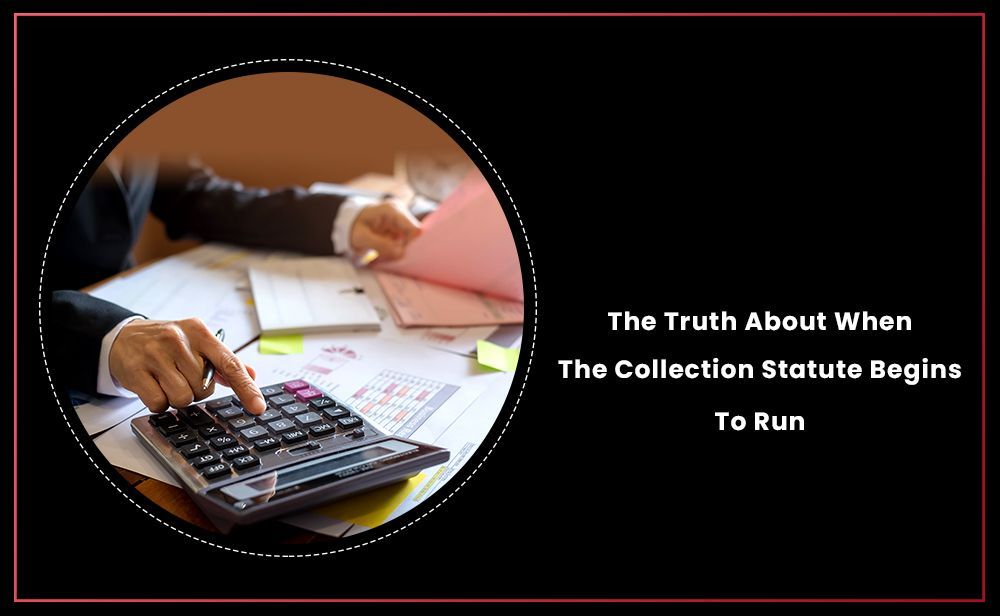The Truth About When The Collection Statute Begins To Run

Bookkeeping and accounting are essential parts of every business, regardless of industry or sector. However, not all companies have the time or budget to do the task justice. Thus, businesses, especially ones that operate on more minor scales and work within a limited budget, tend to overlook bookkeeping procedures and end up with issues come tax time.
The advantage of hiring a Certified Public Accountant includes representation when it comes to IRS audits and much more. However, it is easy to fall prey to the many myths out there simply because we are unaware of crucial tax information. There’s a lot of misinformation out there, and blindly following someone else’s lousy advice could get you into hot water. As experts in the field, we at Christopher G Carmona CPA, APC, have written down the truth about when the tax collection statute begins so you can be well prepared.
What is a tax collection statute? Your tax collection statute refers to the time period in which you are expected to pay your tax amount. The Collection Statute Expiration Date (CSED) marks the end of the collection period, the time period established by law for the IRS to collect taxes. The CSED is normally ten years from the date of the assessment. The collection statute begins to run once the taxpayer’s information is in the IRS system, and the tax liability is calculated (i.e., The “assessment date”).
Bankruptcy extends the statute of limitations on collection by the time you were in bankruptcy, plus six months. If you filed for bankruptcy but did not eliminate all of your tax liabilities, the IRS will have more time to collect the non-discharged taxes from you.
Remember that if a return is audited or a taxpayer files an amended return, and additional tax is owed, the ten-year collection statute on the additional taxes will be later than the original return’s CSED. Additionally, many penalties carry their CSED date, including the Estimated Tax Penalty, Deposit Penalty, Delinquency Penalty, various civil penalties, Fraud Penalty, and Negligence Penalty.
In conclusion, the date of assessment and collection statute expiration date are two integral components of the tax collection representation process. It is vital for tax professionals to know how to obtain these dates and keep watch for CSED date inaccuracies on a client’s IRS account. Through determining the CSED, we, as tax practitioners, can provide the best representation advice and remedies for our clients.
For more information about how we can help you, reach out to Christopher G Carmona CPA, APC. Our trusted services include assisting with IRS notices, IRS audits, IRS penalties, unfiled tax returns, innocent spouse relief, and IRS payroll tax debt relief. We also help clients that owe the IRS money.
We serve clients across Diamond Bar, Los Angeles, Oceanside, Orange County, Riverside County, San Diego County, and the surrounding areas.
To learn more about what we do,
please click here. To contact us, please click here or call us at
(800) 227-2891 or
(323) 707-6148.
